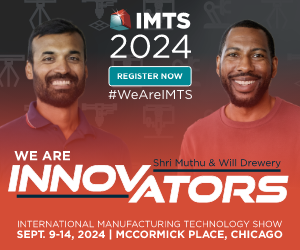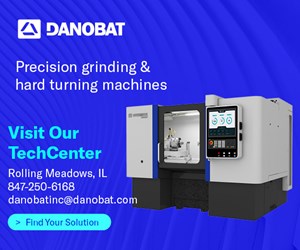We Are The People; Companies Are Machines
Companies are not nice. No doubt many will readily agree.
Companies are not nice. No doubt many will readily agree. However, companies are not mean, either. The adjectives do not apply. People are nice or mean, but a company is just a machine.
That machine is made of capital, labor and legal protections. It functions within the context of laws, and its object is to make a profit. If it doesn’t make a profit, it runs down and fails. Criticizing such a machine for not being “nice” is like asking your lathe to stop doing nothing but turning, and instead start worrying about the welfare of the shop.
The perception of companies as conscious entities was evident earlier this fall. Wal-Mart announced a plan to offer pharmaceuticals at the low price of $4 for 30 days’ supply. “Is Wal-Mart being nice?” was the filter through which this announcement was viewed. A pharmacists’ association criticized the plan for not including all drugs—that is, Wal-Mart could have been nicer. Meanwhile, an anchor on a network morning show revealed that cheaper drugs would lure more people into Wal-Mart stores, meaning the company was acting in its own self-interest after all!
Never mind that companies can only act in their self-interest. That is the kind of machines they are. Even when a company gives to charity, it expects a return—the positive exposure and “good press” that might lead to more profit. A company that does not seek returns on its expenditures in this way will simply spend itself away, ceasing to exist as a company.
Thus, the question of whether Wal-Mart is self-serving is meaningless. The drug pricing plan represents a machine functioning, and arguably functioning quite well. Just compare the elegance of this plan to the confusing and costly Medicare Prescription Drug Coverage that took effect earlier this year—another attempt to address roughly the same demand.
The comparison reminds me of another criticism of Wal-Mart. Its employees deserve more health insurance, some say, and the company ought to feel compelled to provide it. However, Wal-Mart doesn’t “feel” anything. It pays the wages, benefits and perks it needs to pay according to the labor market and the employment laws. It can’t pay more than this, because a profit-making machine loses to competitors and eventually fails if it doesn’t act in the interests of its profits. Market forces and laws shape what it does, but here is the key: People make the laws. This is why it is particularly absurd when, for example, elected members of Congress join in criticizing the company over benefits. If a legislator truly believes that a company’s actions within the law are wrong, then it is the legislator’s job to change the law.
To be sure, this would be difficult. The legislation would be hard to write. The new burden would be potentially damaging, and the legislator would have to stand by the consequences of imposing it. Again, though: This is the legislator’s job. To do otherwise—to suggest that a company can somehow find the capacity to make a sacrifice in the absence of any reward or compulsion—is to confess to being either naive about companies or insincere about the criticism raised.
Companies are just machines. People drive them, but they can be driven only in a certain way, or they fail and disappear. Previous generations have left us with a system in which these machines serve us remarkably well, providing positive innovations for us all. Wal-Mart’s win-win related to drug pricing is an example. While businesses need regulation, I think in many areas they could do with more freedom instead of less—and you might disagree. In any case, human beings decide what obligations both companies and citizens have, and human beings stand accountable for those decisions. To impute expectations of human kindness to companies—to suggest they can be nice or mean, generous or greedy—is to create a bogeyman. And what a convenient bogeyman it is, because it distracts attention from where responsibility truly lies.
Read Next
3 Mistakes That Cause CNC Programs to Fail
Despite enhancements to manufacturing technology, there are still issues today that can cause programs to fail. These failures can cause lost time, scrapped parts, damaged machines and even injured operators.
Read MoreThe Cut Scene: The Finer Details of Large-Format Machining
Small details and features can have an outsized impact on large parts, such as Barbco’s collapsible utility drill head.
Read More
.jpg;width=70;height=70;mode=crop)







.png;maxWidth=300;quality=90)










